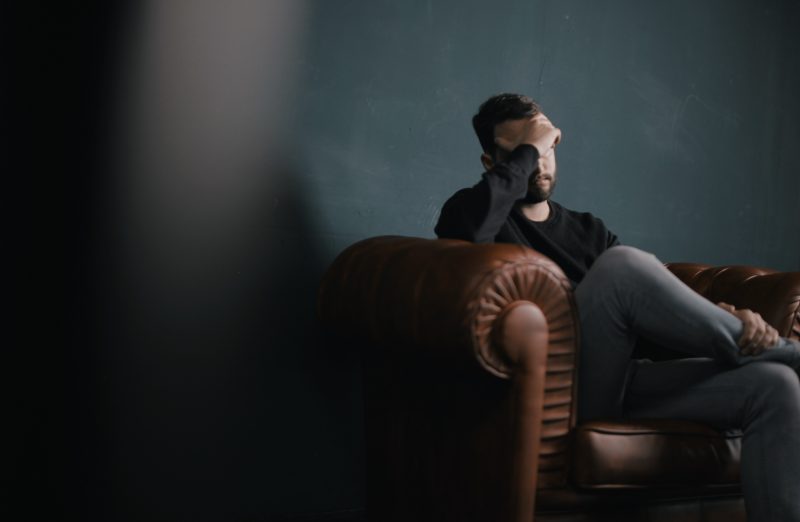- New research found that veterans who “strictly adhere” to traditionally masculine traits may be more likely to develop PTSD, have worse symptoms, and be less likely to seek treatment.
- Specifically, both male and female veterans who believe they should be tough were more likely to have worse PTSD symptoms.
- The study also found that after trauma, which is seen as a weakness, vets often try to double down on their masculinity by having more sex.
- The study follows the American Psychological Association’s 2018 guidelines encouraging therapists to consider discussing the effects of cultural expectations of men and boys with male veteran clients.
- Visit Insider’s homepage for more.
For members of the military, being able to suppress emotions and rely on yourself can be an asset, if not a life-saving quality.
But those traditionally “masculine” traits can exacerbate post-traumatic stress disorder that’s especially difficult to treat, according to a robust new study in the journal Psychology of Men and Masculinities.
For the study, researchers looked at 17 studies including more than 3,500 military veterans to see how traits like self-reliance affected their mental health after experiencing trauma.
They found that the more veterans believed they should be tough and appear unemotional, the more likely they were to develop PTSD, have severe PTSD symptoms, and avoid seeking mental health treatment for those symptoms.
"Previous research has found that military personnel report high levels of conformity to traditional masculine norms, such as emotional control, self-reliance and the importance of one's job," lead author Elizabeth Neilson of Morehead University said in a press release.
"These values can promote self-confidence and skill-building in the field, but when a service member is confronted with physical or mental trauma, they can also contribute to more severe PTSD."
Some veterans who experience trauma start having more sex to take their minds off negative thoughts instead of talking about it

The research also noted that after experiencing trauma like combat or sexual abuse, many veterans took their masculine traits to an even greater extreme, presumably in an effort to counter the very non-traditionally masculine feelings of powerlessness and hopelessness that traumatic experiences can bring on.
"In one study we reviewed, veterans reported engaging in frequent sex to avoid negative thoughts, because feeling sexually desirable temporarily suspended those negative thoughts about their self-worth," Neilson said.
The general findings are troubling because these very traits that seem to aggravate PTSD symptoms also make people with them less likely to seek mental health treatment. And, even those who do seek treatment may struggle to recover since most effective treatments require them to talk about their emotions.
Psychologists recently published controversial guidelines calling on doctors and therapists to confront "toxic masculinity"
In 2018, the American Psychological Association published voluntary guidelines suggesting therapists consider talking about how society's idea of manliness may affect them.
For example, the guidelines encourage doctors to talk to men about healthy family relationships, to support talk therapy for boys and men, and to suggest healthy behaviors like seeking preventive healthcare and eating well - things which, generally, come more naturally to women.
The guidelines were controversial because some saw it as an attack on men and how they see themselves, and not a productive solution to men's higher levels of anxiety and depression, suicide, and overdoses.
The lastest research, however, underscores that some traditionally masculine traits can indeed be harmful, and other recent research has shown that it's not just veterans who are affected.
One recent study, for example, found that pressures to demonstrate masculinity - including by rejecting what's thought of as girly - can weigh on men and influence seemingly trivial choices like what color shirt to wear or type of drink to order.
Women, however, aren't so constrained by femininity, study author and psychologist Jennifer Bosson suggests.
"My collaborators and I argue that the male gender role itself is kind of conceptualized as a precarious status," she told NPR. "Manhood is something that is hard to earn and easy to lose, relative to womanhood."
- Read more:
- Miscarriage can trigger PTSD just like surviving a terrorist attack or domestic violence
- Lady Gaga told Oprah she takes an antipsychotic, and without it she would 'spiral very frequently'
- 'F--- it. It's the right thing to do': Marine Corps combat veteran and 2020 Democratic presidential candidate Seth Moulton explains why he told his PTS story










